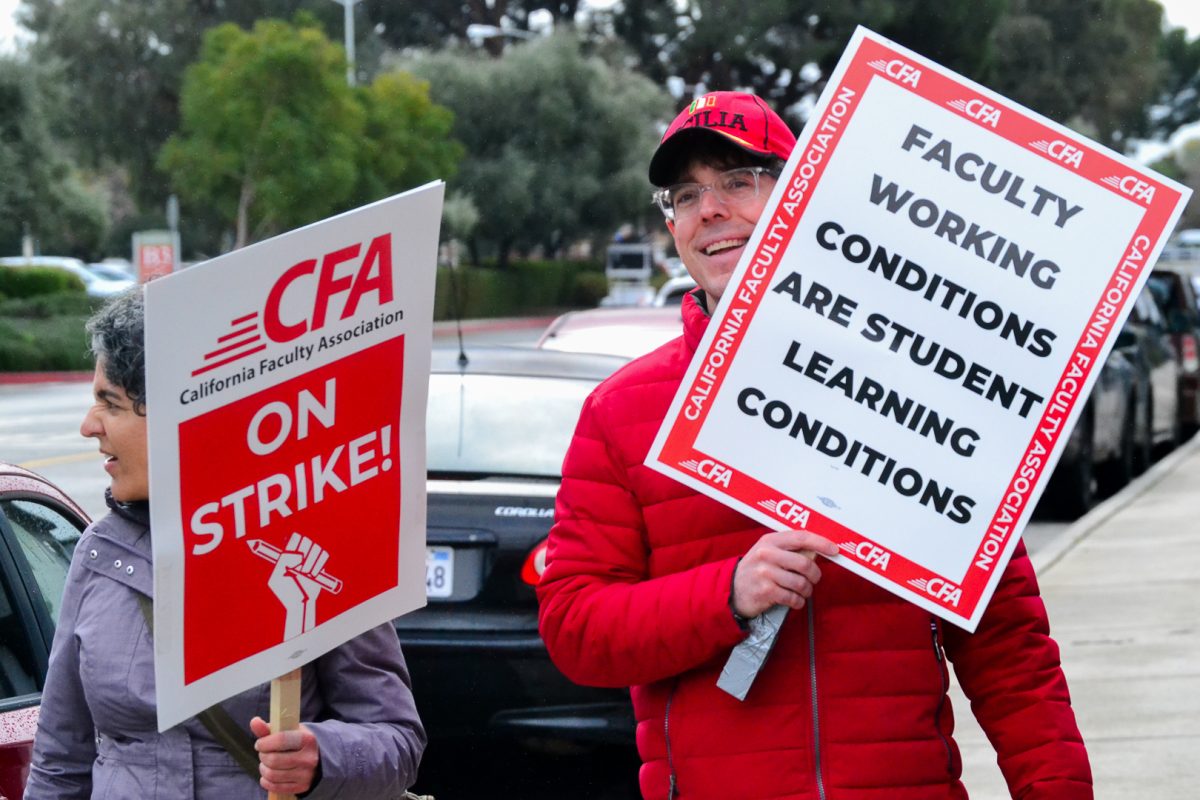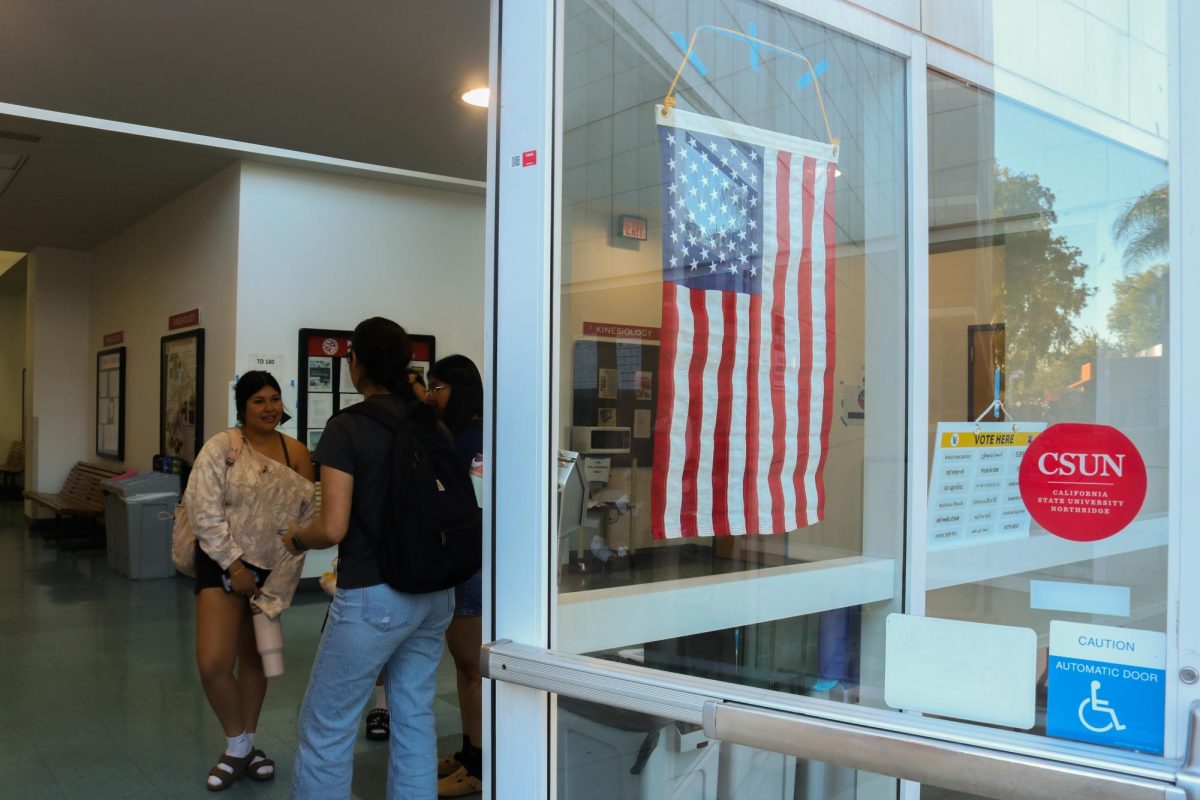The CSUN faculty are apprehensive of the tentative agreement that was accepted by the CFA leadership last month after a one-day strike, as the vote to ratify the agreement is ongoing.
In a town hall meeting of the CFA chapter at CSUN on Feb. 7, faculty members gathered to discuss the agreement, which includes a 5% general salary increase, a $3,000 salary increase for the lowest-paid faculty members among other salary stipulations, and stipulations about workload and parental leave.
Prior to the town hall meeting, Nate Thomas, president of the CFA chapter at CSUN and a professor of cinema and television arts, stated in an interview that he was not consulted in the decision to call off the strike.
Thomas said that after participating in the union for years, he was shocked the decision was made this way.
“I represent 2,000 faculty members on this campus. I am voted in by these people,” Thomas said. “I have an obligation to be honest with them, and to work with them, and to help them. And those people were ready to go out on strike for the week.”
Thomas said that the disrespect shown to the faculty by the administration, such as when the administration emailed the students telling them to report professors who canceled class for the strike, is part of why the strike was necessary.
He believes this gets to the heart of the faculty’s frustration with the administration.
“We’re the CSU, not them,” Thomas said. “Students don’t come to the university for administration, they come for faculty.”
Some faculty members expressed a general lack of faith in the agreement, also feeling sidelined by their leadership’s choice to leave them out of the decision to accept it and end the strike.
Khanum Shaikh, director of the Middle Eastern and Islamic studies program at CSUN, said she believes CFA leadership ceded the union’s position by ending the strike at the point when there was the most will to maintain the struggle.
“There was a tragic loss of collective energy and enthusiasm,” Shaikh said.
Shaikh clarified in an interview that the hardest thing for her to reconcile is that the faculty prepared for the strike for months, only for them to get an email after a day saying that the strike was over and they had obtained a major win.
“It was framed in a way, that, ‘yay,’ we got our demands met, and this is an incredible win,” Shaikh said. “But when you look at the tentative agreement, that’s actually really debatable.”
Shaikh said that one of her main concerns is what the agreement guarantees about workload. While the agreement does set up a process in which administration can be asked to justify increases in class sizes, she is unsure it will make a significant difference.
Shaikh teaches four classes and about 160 students per semester, and she feels that the quality of her teaching is being sacrificed.
“I’m sort of stuck with multiple-choice quizzes sometimes because otherwise I can’t fit it all into 40 hours a week,” Shaikh said. “I work way more than 40 hours a week because I do care about student learning.”
Kevin Wehr, the CFA bargaining team chair and a professor of sociology at CSU Sacramento, said in an interview that this is the first time a contract will include language that sets up a process in which administrators can be asked to justify increasing a class size.
Wehr did say that how this language can actually be implemented is complicated.
When faculty members at the meeting asked why they were not consulted in the decision to call off the strike, Wehr maintained that he believes it is not possible to do that.
“Direct democracy takes a lot of time,” Wehr said to the faculty members who attended the meeting.
Wehr explained that the offer CSU made was contingent on the strike being called off that day, and CFA leaders believed they would lose too much ground if they did not take the offer.
“Management made an offer that was contingent, and they could pull that off the table,” Wehr said. “Folks could have struck for the rest of the week and lost a quarter of their monthly paycheck, and then what happens on the Monday after that?”
Jeffrey Wiegley, a CSUN professor of computer science, said in an interview that he believes CFA leadership allowed the CSU too much leverage by not properly preparing for the logistics of the strike to ensure that faculty members could financially weather it, cornering the leadership into accepting the first deal that was offered.
“We didn’t build up a strike fund or a hardship fund before the negotiations started, which now puts us in a bad situation,” Wiegley said. “We don’t have those funds built up so we can figure out who really can’t pay their rent.”
Wiegley and other faculty members at the meeting also expressed concern and some confusion about how much money they would actually receive if the agreement was to be ratified.
Wiegley said that he believes the CFA leadership is optimistic about how many faculty members will actually benefit from some of the pay increases stipulated in the agreement.
Wiegley explained in the interview that he is concerned that while the CFA is advertising large increases for faculty making the lowest salaries, these raises are dependent on a lot of conditions that will disqualify many people from receiving them in full, or even at all.
“It’s a prorated benefit across a small area of the possible salary range that some people have,” Wiegley said, and he is concerned that many of these people may not realize that.
Thomas said that as the president of his chapter of the CFA, he can usually sense if a tentative agreement will pass. This time he is not sure.
“People are so upset with this,” Thomas said. “They really thought we had the power to show the CSU.”
Voting to ratify the tentative agreement started Monday, Feb. 12 and will last until 5 p.m. on Sunday, Feb. 18.

















